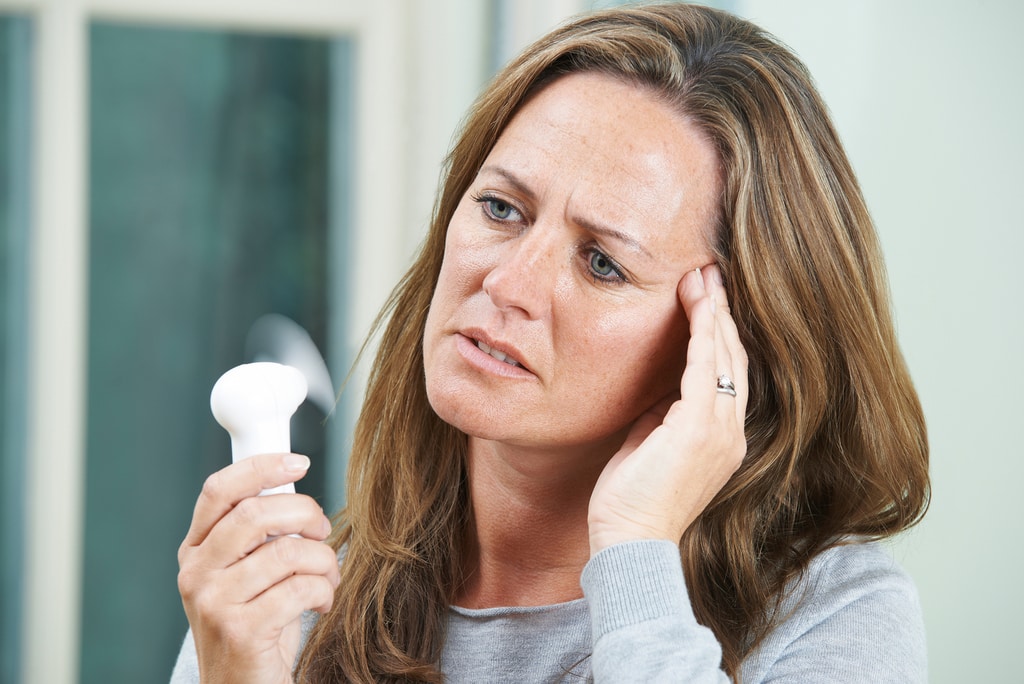
If you’re dealing with strange symptoms during menopause, you are not alone. We’ve all heard of hot flashes and poor sleep… but there’s a whole lot more that nobody talks about.
Find out all about the 34 symptoms of menopause. Understand your body better to learn how to work with it, rather than against it. All to help you ease the worst symptoms of menopause.
Menopause is the natural biological process that marks the end of a person’s menstrual cycle. It is officially considered menopause after 12 consecutive months with no period. And usually happens around the age of 45-55 years old.
Before this, there is the menopausal transition stage. Also known as perimenopause. This is the stage where hormones begin to change and prepare for the body to enter menopause. Perimenopause can be symptomatic and vary in longevity. It is often experienced for several years before the complete cessation of periods.
All these hormonal changes can cause a wide range of symptoms throughout the entire body. We have likely all heard of hot flashes. But it’s time for the other menopause symptoms to take the spotlight. All 34 of them.
Weight gain is an extremely common symptom of menopause. Studies show that up to 50% of women will have gained 10kg by the end of perimenopause and the start of menopause. No thanks to the decline in estrogen.
One of the most common symptoms of menopause- the dreaded hot flashes. They may differ slightly from person to person. But ultimately, hot flashes cause sudden bursts of heat, sweating, and flushing. The feeling of burning from the inside out. Particularly around the face, neck, and chest.
In simple terms, the hot flashes that happen during our sleep. Due to the drop in estrogen levels during menopause, the hypothalamus is affected. The hypothalamus is responsible for temperature regulation. This may explain the sticky bed sheets and the bed like an oven.
Those night sweats and hot flashes can cause a disrupted night’s sleep. And many women sleep lighter, wake up earlier, or struggle to fall asleep.
Hormonal fluctuations can cause problematic sleep for women experiencing menopause. Hot flashes and night sweats can leave you feeling unrested. This can result in fatigue and exhaustion which can be disruptive to everyday life and mood.
Sleep disruptions can cause fatigue. And fatigue certainly doesn’t help with concentration levels. But it’s not just the sleep deprivation. Declining levels of estrogen can lead to brain fog and difficulties in concentration.
Just like with the difficulties in concentrating, menopause can cause memory lapses. No thanks to estrogen decline and sleep disruption.
Joint pain impacts up to 50% of women experiencing menopause. The decrease in estrogen levels means there is less joint lubrication. Plus there are fewer hormones to fight back against inflammation. Resulting in painful joints and even menopausal arthritis.
Just like joint pain, menopause can cause muscle aches, tension, and pain. This is due to the decline in estrogen that protects us from inflammation.
The decrease in estrogen levels can have a detrimental impact on bone density. The decrease in this hormone can cause bone loss. In the most severe cases, this leads to osteoporosis. This means the bones become more fragile. Resulting in a higher risk of fractures and breaks.
Menopause can cause havoc for hair thinning. Due to hormonal fluctuations, the hair follicles can shrink. When this happens, the hair can become more prone to shedding and unfortunately is slower to grow.
Headaches can become more frequent throughout the menopause transition. The fluctuations in hormones can make headaches and migraines a more common occurrence.
It turns out that dizziness is one of the most common symptoms of menopause. It’s not yet well understood. However, research has found that it may be connected to menopausal anxiety.
This can happen throughout the perimenopause, also known as the menopausal transition. Before reaching menopause, women may experience irregular and missed periods.
Believe it or not, the female sex hormones have a huge influence on our gut microbiome. And in turn, our digestive tract. Menopause can disrupt the healthy balance of bacteria in the gut. This can cause changes in the digestive system. This can lead to bloating and abdominal discomfort.
We wish it could just stay in the past with our teenage years. However, acne is seemingly common for those transitioning through menopause. The changes in hormones during this time can cause adult acne to develop.
The decline in estrogen throughout menopause causes skin changes. It causes a decrease in collagen production and impacts skin hydration. This can result in thinning, dryness, and itchy skin.
Emotions that change more than you change your clothes. One minute everything is fine and the next, feelings of sadness or anger. Although a frustrating symptom, this is completely natural during perimenopause and menopause.
Breast soreness is common during menstruation. This is due to the shifts in hormone levels causing swelling and tenderness. However, breast soreness can become even more problematic during menopause. This is due to the more dramatic hormonal changes.
The levels of estrogen and testosterone drop during menopause. And this can have a big impact on your libido and sex drive. It can make physical arousal more difficult.
The female sex hormones work wonders for circulation around the vagina. However, during menopause, the levels of these hormones decrease. In turn, this means there’s not enough blood flow to ensure natural lubrication. This can result in vaginal dryness and discomfort during penetrative sex.
The drop in estrogen that follows menopause can make UTIs more common. The lower levels of estrogen can cause thinning of the vaginal tissues. This can lead to dryness and irritation. This causes a higher susceptibility for UTIs to develop.
When you are fatigued and sleep-deprived, it’s no shock that you may feel more irritable. The changes in hormones can exacerbate this too alongside the other stressful menopausal symptoms.
Keratin is responsible for keeping our nails strong. When menopause happens, we don’t get enough of it. This can lead to weak and brittle nails that break easily.
Women can experience a sensation of burning in or around the mouth. This discomfort stems from hormonal fluctuations. They affect the sex hormone receptors present in the mouth’s mucus. And the reduction in estrogen exacerbates pain and discomfort.
Histamine is responsible for allergic reactions. And during menopause, histamine levels can spike. This can result in new or worsening allergy symptoms.
It’s not unheard of for women to experience changes in taste during menopause. +
Ringing, buzzing, or strange sounds in the ear or ears may be tinnitus. This can happen during menopause, believed to be triggered by hormonal changes.
Although not well understood, some women experience electric shock sensations throughout menopause. It’s believed to be caused by the hormonal shifts impacting the nervous system.
The changes in hormones can cause anxiety for menopausal women. Often being worse when fluctuations occur or, at night.
Hormonal imbalances can trigger depression. Plus the lack of sleep and exhaustion doesn’t help. Dealing with all the changes throughout menopause can understandably cause low mood. This can result in depression.
Some women experience panic attacks during menopause. This is often related to hormonal changes and menopausal anxiety. They can happen suddenly or seem out of nowhere, known as panic disorder.
The change in hormones during menopause can cause the pelvic floor and bladder to weaken. This often results in sudden urges and a more frequent need to urinate known as incontinence.
If you experience symptoms to do with your heart, always speak to a doctor. However, many women do experience heart palpitations and irregularities due to menopause.
Many of these symptoms are common and normal during menopause. But that doesn’t help in itself to take away the discomfort they cause. Thankfully, there are ways we can ease menopause symptoms and take back control.
It is always important to speak to a medical professional especially if any of these symptoms are disrupting your quality of life.
They may also have medical treatment options to help such as:
There are also changes you can make in your daily lifestyle. These small changes can provide a dramatic improvement in menopausal symptoms. They are:
Menopause can be a particularly challenging time when symptoms arise. It’s important to take the very best care of yourself as your body goes through these changes. And know that there are things that can be done to make your life easier and yourself more comfortable.
Sources:
Related Articles
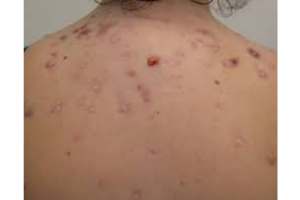
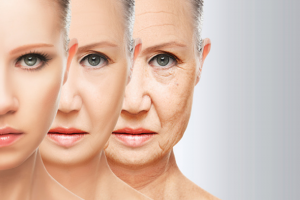













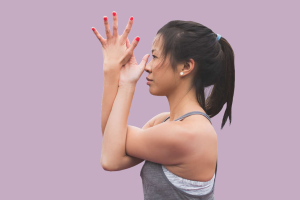


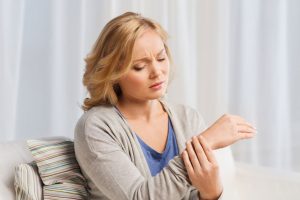
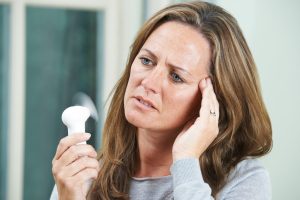
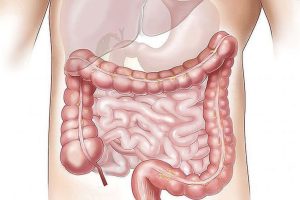
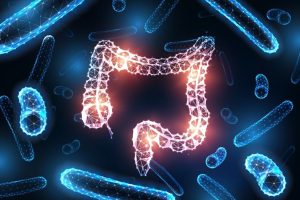
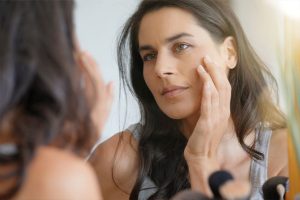
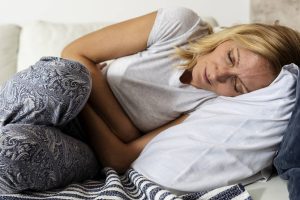
About
* These statements have not been evaluated by the Food and Drug Administration. This product is not intended to diagnose, treat, cure or prevent any disease.